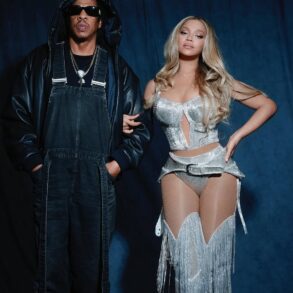In an interview with CNN this week, George Santos, the scandalous Republican representative for New York, admitted something almost as shocking as the 23 federal charges against him: It wasn’t a Republican like former President Donald Trump who got him into politics. It was a Democrat.
“AOC was my inspiration,” he said. “Most people don’t know that.”
It’s hard to know whether anything Santos says is true — he’s lied about everything from college diplomas to Wall Street jobs. But over the course of a year reporting on him for my upcoming book, The Fabulist: The Lying, Hustling, Grifting, Stealing, and Very American Legend of George Santos, I’ve discovered that his fixation on AOC is very real. It goes a long way to explaining his sudden rise, if not the unethical things he has done to achieve his fame.
The Santos-AOC story begins, like so many stories of Rep. Ocasio-Cortez (D-N.Y.) obsession, with Twitter.
In 2019, as the Republican newcomer prepared to kick off his campaign, he sought notoriety through adjacency by becoming an AOC reply-guy, tagging her in more than 20 since-deleted tweets about everything from her office search to her supposedly “lux apartment.” He hashtagged “#AOCisanidiot.” He called her a “deranged psychotic woman” who had no place in Congress. It went on — and continues to this day, with Santos peppering his posts with AOC critiques.
But even as he was flaming her online, Santos seemed to admire her vibe and even her looks. And he said so publicly.
In March of 2020, when one of the hosts on the Empire State Conservatives Podcast said that AOC “looks like a donkey,” Santos pushed back: “She’s a very good-looking woman, and, you know, she takes care of herself.” Speaking generally, he suggested that if someone was going to “compliment her on her looks, I won’t go after you.”
His interest in her was complicated and went deeper than the surface, and this gets to AOC’s formative influence on Santos.
In the CNN interview this week, he said he used to think you needed to be a Kennedy, Bush or Clinton to be in politics, but that changed after Ocasio-Cortez won. On Thursday, he thanked her for a “beautiful moment” when she shook hands with kids from his district. Sometimes, he’d suggest that she essentially annoyed him into running: She was one of the people who “really threw a bug in me,” he said in a candidate forum complaining about her representation of the district where he grew up. Santos even saw a way to make money off his political neighbor. A political consulting company he co-founded charged over $100,000 to the campaign of Tina Forte, who was running hopelessly against AOC in 2022. By that time, Santos was trying for the second time to follow AOC to Congress himself.
“AOC demonstrated that you could come out of nowhere and beat the odds, get elected and become a national personality,” says Steve Israel, who used to run the Democratic Congressional Campaign Committee and once held the House seat Santos later won. Santos “followed that playbook.”
It’s possible that the similar backgrounds of AOC and Santos made it easier for him to relate to and therefore imitate her. She was a fellow millennial — just a year younger than Santos — and came from a multilingual household like he did. Santos’ feelings about her looks and fashion sense are unsurprising, given his own attention to self-image. Santos has repeatedly claimed to be on Ozempic, and with his famous preppy-sweater-and-blazer combo, he clearly knows the value of a recognizable political costume — especially for someone young, inexperienced and constantly photographed. They’ve also both worked rank-and-file jobs: AOC was a bartender in Union Square; Santos worked in a Dish Network call center in a dusty corner of Queens, often hustling to scrounge up cash.
Both legislators also grew up on the outside looking in at power and status. Class consciousness was at the heart of both congressional candidates’ early political makeup: In the viral video that introduced many voters to Ocasio-Cortez in 2018, she argued that “women like me aren’t supposed to run for office” and that she wasn’t born into a “wealthy or powerful family.” Santos had the same mindset, one that only sometimes revealed itself under all his stories about Wall Street wealth and fancy degrees. In our very first conversation, in 2019, before he’d polished his political pitch, Santos told me with defiance that nothing had been handed to him in life — that he worked in private equity his entire career (a falsity), though he was “not a one percenter.” Instead, he said, “I work for the one percent.”
Of course, Santos and AOC have opposite-aisle political views on how to change economic circumstances, along with pretty much everything else. She’s not a serial liar, for one thing. (When I asked for her thoughts about Santos’ fandom, she did not respond). But ideology has often been fungible for Santos, who has flip-flopped on everything from abortion bans to Covid-19 precautions when convenient. The more constant truism in Santos’ life has been a desire for advancement and fame, from his drag-dressing days to his lies about being a finance star. His jump into politics coincided with a moment when politics became the hot place to be for a young person burning with conviction and ambition — a person like AOC.
Santos and AOC have taken divergent paths in their time on Capitol Hill. Ocasio-Cortez built a brand off her digital swagger, outsider mentality and willingness to be confrontational with the power structure, something she demonstrated during her new member orientation by joining a climate protest at Nancy Pelosi’s office. This kind of aggressive behavior was right up Santos’ alley. But in the years since, AOC has expanded her skills at the inside game, reaching beyond her progressive allies in The Squad, while Santos has leaned into confrontation. He could afford to: He is uninhibited by committee work or much chance at reelection. Unlike AOC, he has not set himself up for a long career in elected politics. While she fundraises with ease and serves as a vice-ranking member for an important committee, Santos is even more of an outcast than he was back when he used to think you had to have a famous last name to run. He is now threatened with expulsion and years in prison. With little left to lose, he is free to stay in the friendly confines of Rep. Lauren Boebert and Marjorie Taylor Greene’s embrace; able to lob potshots at his own party with AOC-style panache; eager to solidify his outsider brand in the time he has remaining in the spotlight.
This post was originally published on this site be sure to check out more of their content.








